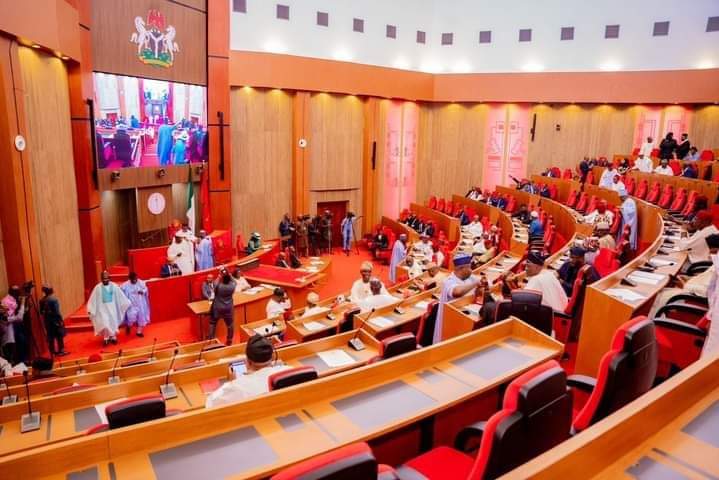The Senate Committee on Public Procurement has initiated a decisive action against recalcitrant federal ministries, departments, and agencies (MDAs) that have persistently ignored invitations and failed to submit mandatory accountability reports. This assertive move involves the immediate suspension of procurement activities for these non-compliant entities, a measure designed to enforce transparency and adherence to procurement regulations. Senator Olajide Ipinshagba, Chairman of the committee, announced this decisive step during a press briefing in Abuja, highlighting the repeated failure of several government bodies to cooperate with the committee’s oversight functions. This lack of cooperation, he stressed, undermines the principles of accountability and transparency that are crucial for effective governance and responsible public spending.
The committee’s forceful action underscores its commitment to upholding the Public Procurement Act, a vital piece of legislation designed to ensure probity and efficiency in government procurement processes. By partnering with the Bureau of Public Procurement (BPP), the committee aims to create a robust framework for compliance with the Act. This collaboration leverages the BPP’s expertise and resources to ensure that government procurement processes are conducted in a transparent, competitive, and fair manner, thereby safeguarding public funds and promoting value for money. The suspension of procurement activities serves as a powerful deterrent against non-compliance and reinforces the committee’s resolve to hold erring MDAs accountable.
The repeated failure of certain MDAs to respond to the committee’s invitations represents a blatant disregard for due process and undermines the committee’s ability to effectively carry out its oversight responsibilities. This defiance obstructs the committee’s efforts to scrutinize government spending and ensure that public funds are utilized judiciously. The committee views this lack of cooperation as not only a violation of legal obligations but also a breach of the moral duty to ensure accountability in the management of public resources. The suspension of procurement activities is a direct consequence of this non-compliance and serves as a clear signal that the committee will not tolerate such disregard for its authority.
Beyond the immediate suspension of procurement activities, the committee has also outlined further steps to enforce compliance and deter future violations. Senator Ipinshagba emphasized that the committee will recommend disciplinary measures against individuals and entities that persist in their defiance. These measures could range from administrative sanctions to legal action, depending on the severity and nature of the non-compliance. This multi-pronged approach aims to create a system of accountability where MDAs are incentivized to comply with the Public Procurement Act and cooperate fully with the committee’s oversight functions.
The committee chairman underscored the importance of viewing oversight not merely as a legal obligation but as a moral imperative. He stressed that accountability in public spending is essential for building public trust and ensuring that government resources are utilized effectively and responsibly. By engaging in open and transparent procurement processes, the government demonstrates its commitment to serving the public interest and upholding the highest ethical standards. This emphasis on ethical conduct reinforces the importance of responsible stewardship of public resources and promotes a culture of integrity within government.
The committee’s decisive action sends a powerful message to all federal MDAs that compliance with the Public Procurement Act and cooperation with oversight bodies are not optional but mandatory. This assertive stance reinforces the importance of transparency and accountability in government procurement and serves as a deterrent against future violations. By holding non-compliant MDAs accountable, the committee contributes to strengthening the rule of law and promoting good governance in the management of public funds. This commitment to enforcing regulations ultimately benefits the citizens who rely on the government to manage their resources effectively and responsibly. The committee’s actions represent a crucial step towards ensuring that public procurement processes are conducted with the highest levels of integrity and efficiency.


